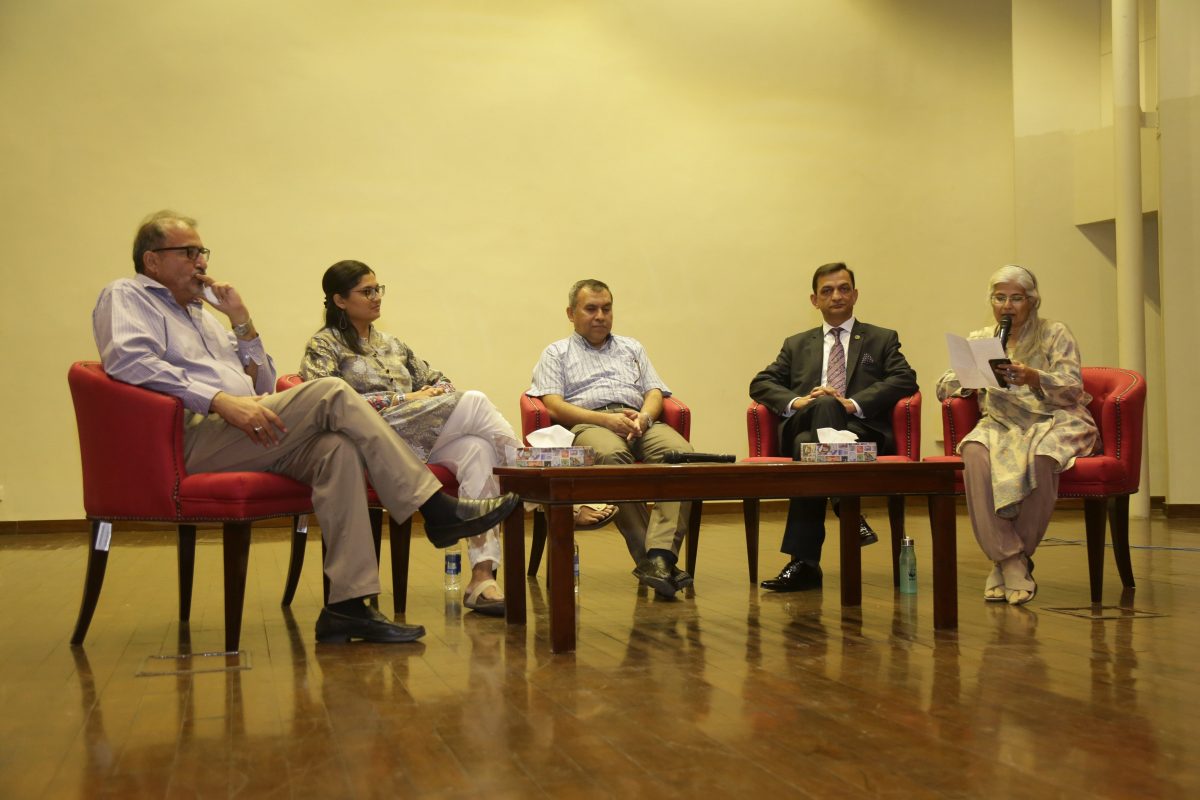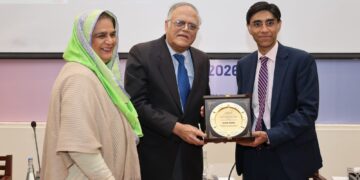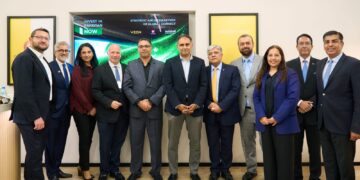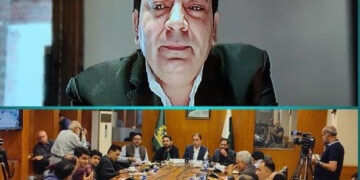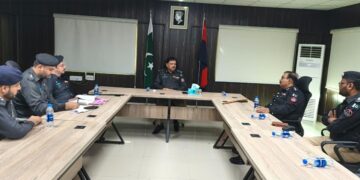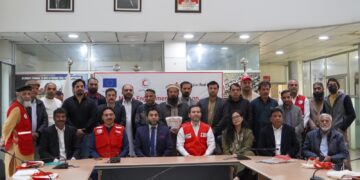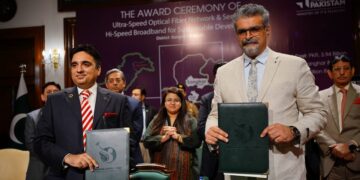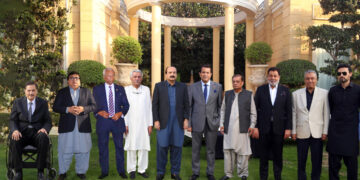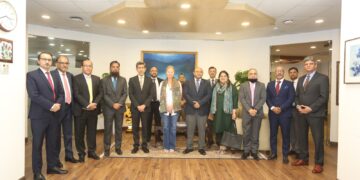KARACHI: The IBA in collaboration with Karachi Urban Lab (KUL) conducted an engaging panel discussion on Pakistan’s Water Scarcity in the 21st Century. The aim of the panel discussion was to understand the causes for the severe water crisis prevalent in our country, and discuss the best possible course of action to tackle the imminent threat. The event was attended by students, faculty, environmentalists and media representatives.


Director KUL and Professor at IBA Dr. Nausheen Anwar commenced the event by familiarizing the audience with the purpose of KUL which is to encourage critical thinking of urban issues, out of which water is a major one. She highlighted the importance of water as a part of the urban landscape that not only connects to the cities but also to other terrains, which include ecology, conflicts, governance and institutional dynamics. Journalist and Geographer Afia Salam with other esteemed panellists from Commission on Science and Technology for Sustainable Development in the South (CST), Hisaar Foundation and NED UET began the panel discussion by focusing on the complex dynamics that have shaped Pakistan’s current state of water scarcity. Salaam moderated the event with her extensive knowledge about Pakistan’s water scarcity issues. The panellists probed into how and why Pakistan has gotten to this stage, what kinds of policies and pragmatic solutions are viable for surmounting the challenge, and what should be a collective ‘water vision’ as we go forward.
An eminent hydrologist from CST, Dr. Hassan Abbas, gave an extensive account of the history of water management and water flow in Pakistan, since the Mughal era and the British colonial rule. He talked about the historical engineering of the Indus River Basin, and its significance to water supply, distribution and management at different scales. He also discussed the current policy focus on building dams.
Mr. Faisal Hassan, an award winning agriculturalist from Punjab, commented on the significant relationship between agriculture farming, water and climate change. According to him, monocropping is leading to soil erosion. He said, “Right now we are farming with dirt. If we go into crop rotation, we will have a better organic build up, less diseases and would require lesser amount of pesticides.”
Moving on, Urban Planner and Dean Architecture Department, NED-UET Dr. Noman Ahmed discussed the reasons that have triggered Karachi’s water supply challenges and what is required to surmount them. He discussed how the utilization of water has increased over the years due to population growth, changes in lifestyle, and a continuous cycle of migration.
Environmental Practitioner Hisaar Foundation, Sanaa Baxamoosa proceeded to highlight the importance of water conservation. She said that water is such a complex issue because it poses challenges on several fronts, such as water scarcity, equity, quality, access. She mentioned that it is high time that the government and the citizens realise the true value of water, because currently in the urban rural setting, citizens pay for water for their daily usage. However, the price of water for the poor is much higher.
The latter part of the discussion dealt with the solutions presented by the panellists to combat the issue of water scarcity in Pakistan. The panellists agreed that there needs to be an integrated approach to preserving water, which makes use of social sciences and cultural sciences, and a need to rethink the water economic models. Dr. Ahmed suggested the creation of an artificial water front such as the San Antonio River in Texas. He believed that Karachi has the geographical landscape to sustain such a model. The panellists also highlighted the need to control water pollution, and to bring about efficiency in the irrigation system that Pakistan inherited more than 150 years ago.





